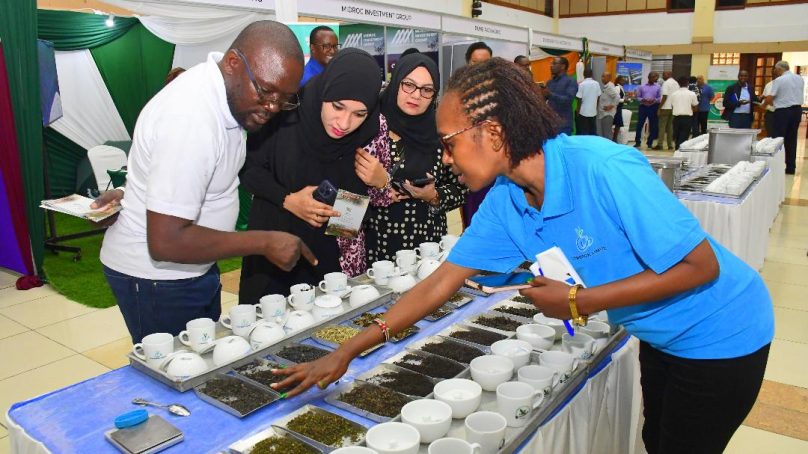
In the wake of the shrinking market for crush, tear, curl (CTC) tea, East African nations are being urged to harmonise their tea production standards to fully exploit the growing global demand for orthodox tea.
Speaking during the launch of Africa Orthodox Tea by the East African Tea Trade Association in Mombasa, Tea Board of Kenya (TBK) CEO Willy Mutai said Africa has long been a global leader in black CTC tea production, contributing 12 per cent to the global commodity market.
However, he noted that global prices for black CTC tea have stagnated and declined in recent years, significantly affecting farmers’ incomes.
“Africa now finds itself at a strategic inflation point. Global consumers are seeking authenticity, origin stories, wellness and visibility. Orthodox teas provide exactly that, it is handcrafted, diverse in flavour, rooted in heritage and tailored to premium segments of the global markets,” stated the CEO
He added that black orthodox tea has high value, high potential opportunities, thus repositioning African black from bulk commodities to luxury and branded products.
To unlock this potential, Mutai called for stronger regulatory coherence among East African countries and other African tea-producing nations.
“As regulators, we must harmonise standards, synchronise quality benchmarks, sheer visibility protocols and streamline cross-border trade procedures for tea produce and the products that we produce,” said Mr. Mutai.
The CEO also advocated for the establishment of inter-countries systems for licensing, certification and trade facilitation.
He further disclosed that they are championing the adoption of climate-smart farming, responsible water use, restoration of the forests and carbon-smart smart at the farm level.
“In manufacturing, we are promoting green energy, factory waste management as circular economic models that can favour our tea producers,” he said, urging investment in technology and innovations to enhance tea value chains.
Kenya Tea Development Agency (KTDA) chairman Chege Kirundi expressed confidence in Kenyan farmers’ capacity to produce orthodox tea, noting that over 12 million kilogrammes were produced in 2024.
“We are in a position now to move ahead and produce more for the world market,” he said, calling for more marketing efforts of African orthodox teas.
He assured buyers that Kenyan farmers have the capacity, the necessary climate and are willing to produce as much as the demand that would be created. “We find this as a new channel that would be able to give us the market outlets that we do need,” he said.
Uganda’s ambassador to Kenya, Amb Eunice Kigenyi said global demand for orthodox tea is growing at over six per cent annually, driven by wellness trends and consumer preferences for traceable and ethically produced goods.
“This is a market segment worth billions of dollars, and East Africa is well-positioned to capture it. This means new opportunities for farmers, processors, exporters and a chance to create thousands of jobs along the value chain,” she said.
Orthodox tea, Kigenyi added allows the region to move from bulk export and embrace branding, packaging, and storytelling, highlighting the unique origin, culture, and sustainability practices behind every crop.
To realise the full potential of orthodox tea, she emphasised the need for cooperation to improve quality and consistency through training and certification, leveraging digital platforms and e-commerce to reach global buyers, and promoting sustainable practices that appeal to environmentally conscious consumers.
She also urged producers to invest in branding and explore origin-based markets, noting that consumer expectations are evolving rapidly.
- A Tell Media / KNA report / By Sadik Hassan







